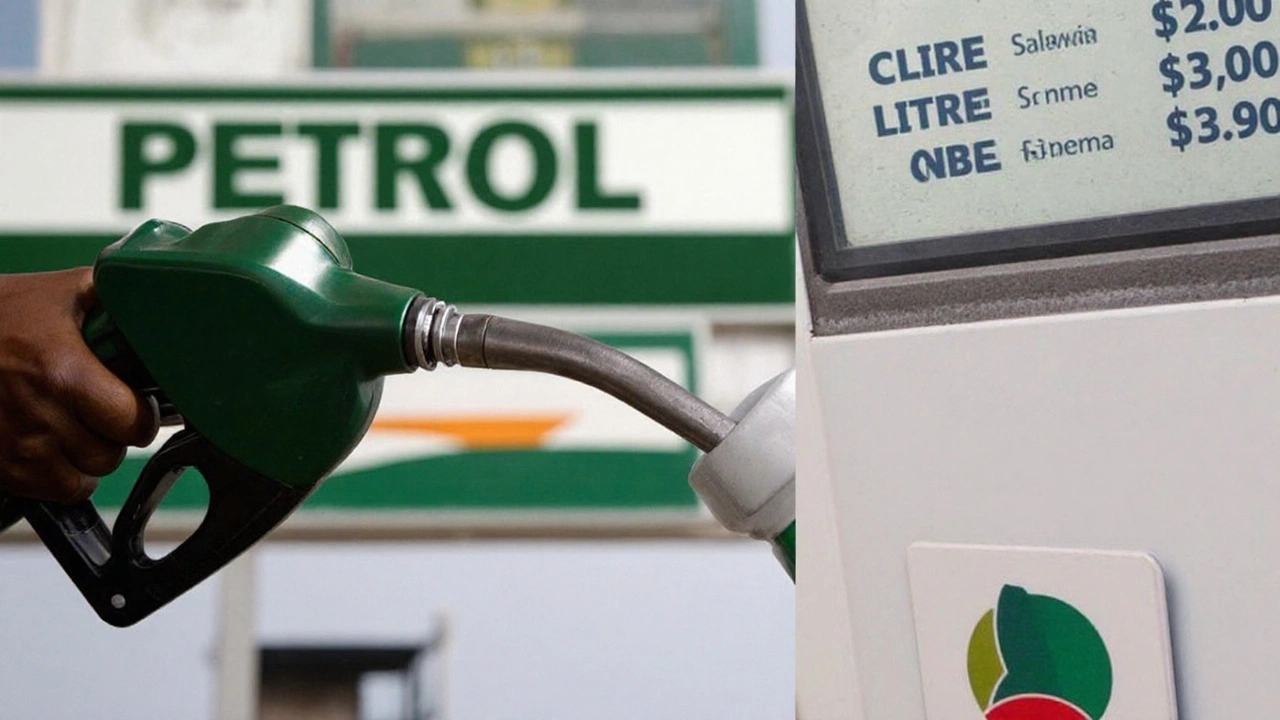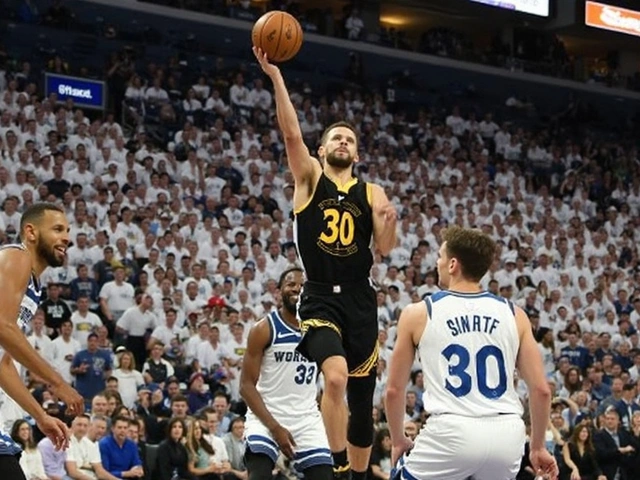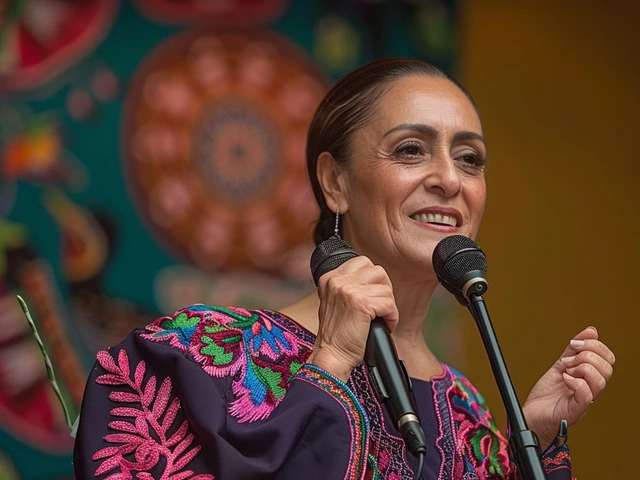Why pump prices stay high despite cheap crude
At a packed press briefing in Abuja, PENGASSAN President Comrade Festus Osifo made it clear: Nigerians are being ripped off at the fuel pump. He pointed out that the world market price for crude oil has slid from about $80 a barrel to roughly $60‑65, yet the average retail price of Premium Motor Spirit (PMS) still hovers around N875‑N905 per litre. In his view, the cost should have trended down to somewhere between N700 and N750.
Osifo explained that under Nigeria’s deregulated downstream system, two factors dominate the final price – the international crude price and the exchange rate – together accounting for about 80 % of what drivers pay. He urged anyone to look up the PLAT (Platts) benchmark online, convert the quoted cost per cubic metre into litres, then into naira. The math, he says, shows a clear gap between market reality and what motorists are charged.
The union’s frustration stems from a perceived disconnect between the ministry‑run NMDPRA and the market players. "NMDPRA should not watch the suppliers of products exploit the citizenry on the pretence of deregulation," Osifa warned, urging the regulator to step up monitoring and stop letting marketers set arbitrary pump prices.
Industry heavyweight Aliko Dangote has entered the debate, claiming his refinery sells petrol at about N815‑N820 per litre – a figure he says is still far below what neighbours in West Africa pay. Even with that lower price, the union argues, most Nigerians are still paying well above the cost‑based range.

Calls for transparency and reform
To close the price gap, PENGASSAN is demanding that NMDPRA immediately publish detailed pricing templates. Such templates would lay out each cost component – from import duties and taxes to the exchange rate and the PLAT reference – making it harder for marketers to hide margin inflations.
- Publish pricing templates: A clear, publicly available spreadsheet that shows how each litre is priced.
- Align pump prices with global crude: Adjust retail rates whenever the Brent or WTI benchmarks shift significantly.
- Strengthen enforcement: Empower NMDPRA to penalise any firm that deviates from the template without justification.
- Address security issues: Tackle the rising attacks on pipelines and offshore facilities that drive up operational costs.
Security concerns are more than a side note. The union highlighted escalating attacks in the Niger Delta’s waterways, where militants target vessels and infrastructure. Those incidents push multinational oil companies toward divestment, even as the federal government rolls out cost‑saving incentives. Osifo warned that without a stable security environment, any effort to lower pump prices could be undermined by higher insurance premiums and reduced supply.
Meanwhile, the debate over deregulation continues to polarise policymakers. Supporters argue that a free market leads to competition and better services, while critics like PENGASSAN say it leaves room for price‑gouging when oversight is weak. The union’s stance is that deregulation should not translate into a free‑for‑all where consumers bear the brunt.
Inside the industry, some marketers claim that the cost structure is already thin, citing high taxes, import duties, and the volatile naira as reasons they cannot match the low price floor suggested by the union. They argue that any forced price cut could jeopardise supply chains and lead to fuel shortages, a scenario the country can ill‑afford given its already tight fuel logistics.
What’s clear is that the gap between international oil prices and local pump prices is now a political flashpoint. As PENGASSAN pushes for greater transparency, the next steps taken by NMDPRA – whether it rolls out the demanded templates or continues with the status quo – will determine whether Nigerians see a real drop at the pump or keep paying premium prices for a commodity that’s cheaper abroad.






Posts Comments
PRATIKHYA SWAIN September 27, 2025 AT 12:21
This is exactly why we need transparency. No more black boxes.
Prasad Dhumane September 28, 2025 AT 14:39
I’ve seen this play out in so many countries - when the market’s deregulated but oversight vanishes, it’s not freedom, it’s a free-for-all. The math isn’t complicated: crude down, pump prices should follow. But someone’s pocket is getting fatter while Nigerians choke on N900/litre. It’s not economics - it’s exploitation dressed in business jargon.
rajesh gorai September 29, 2025 AT 17:35
The structural asymmetry in the downstream value chain is a classic case of rent-seeking behavior masquerading as market equilibrium. The NMDPRA’s regulatory capture by oligopolistic intermediaries has created a pseudo-market where price discovery is performative, not functional. We need algorithmic price anchoring tied to PLAT + FX + logistics - not gut feelings.
Rampravesh Singh September 30, 2025 AT 16:54
Let me be unequivocal: the Nigerian people deserve dignity in pricing. This is not a matter of economics - it is a moral imperative. The government must act with urgency, integrity, and unwavering resolve. We cannot allow profit margins to eclipse national welfare.
Akul Saini October 2, 2025 AT 09:27
The PLAT-to-naira conversion is the key. If you actually do the math - crude at $65/barrel = ~$0.39/litre, add freight, duties, forex at 1500/USD, you’re looking at N720–N760 max. Anything above that is pure margin inflation. The fact that NMDPRA won’t publish the formula is the real scandal. They’re not protecting the market - they’re protecting the scam.
Arvind Singh Chauhan October 2, 2025 AT 19:08
You know what’s sad? People still believe the government cares. They’ve been lied to for decades. The refinery is owned by Dangote - who’s also got ties to the regulators. The union’s crying into a microphone while the same people who control the pumps also control the press. And you wonder why nothing changes? It’s not corruption. It’s a system designed to bleed you dry - politely.
AAMITESH BANERJEE October 3, 2025 AT 03:28
I get where PENGASSAN is coming from, but let’s not pretend the solution is just publishing a spreadsheet. The real issue is infrastructure - pipelines get blown up, terminals are outdated, and distribution is a mess. If you force prices down without fixing logistics, you get shortages. And shortages mean people go without fuel. That’s worse than paying N850. We need both transparency AND investment.
Akshat Umrao October 3, 2025 AT 11:30
Honestly? I just want to know who’s making the extra N150 per litre. 🤔 Is it the importers? The transporters? The tax collectors? Or just someone in a fancy office in Abuja with a calculator and no conscience?
Sonu Kumar October 3, 2025 AT 20:30
Ah yes - the classic "let’s blame the marketers" narrative. How convenient. The same people who blame deregulation when prices rise, but never mention the 40% tax burden, the 18% VAT, the 12% import duty, the 30% forex spread, the 25% security surcharge, the 15% logistics markup, the 10% storage cost, the 8% insurance premium, the 5% handling fee, the 3% administrative overhead, the 2% regulatory compliance cost, and the 1% "mystery margin" that magically appears every time the naira dips. The math isn’t broken - your understanding is.
sunil kumar October 4, 2025 AT 07:39
While the union's demands are reasonable, we must also consider the macroeconomic context. The naira’s depreciation has been significant, and global shipping costs remain elevated. A rigid price cap could disincentivize private investment in distribution networks, ultimately reducing availability. A phased, data-driven approach may be more sustainable.
Deepti Chadda October 4, 2025 AT 22:49
NIGERIA ISN’T A CHARITY! If you want cheap fuel, build your own refinery or move to China 😤
Anjali Sati October 5, 2025 AT 09:09
PENGASSAN? More like PENGASSAN-ONLY. They’re just lobbying for their own paychecks. Everyone knows the real problem is corruption - not deregulation.
Preeti Bathla October 6, 2025 AT 10:09
You think Dangote is being generous? He’s got the refinery, he’s got the contracts, he’s got the government on speed dial. And you’re surprised people are still paying N900? Wake up. This isn’t capitalism - it’s a monopoly with a Nigerian flag on it.
Aayush ladha October 8, 2025 AT 06:34
Actually, if you look at Ghana and Senegal, they pay more than N900. So maybe Nigerians are getting a deal? Or maybe you just don’t know how to compare apples to oranges.
Rahul Rock October 8, 2025 AT 18:19
The real tragedy isn’t the price - it’s that we’ve accepted this as normal. We’ve been conditioned to believe that fuel should cost more than water, electricity, and education combined. This isn’t economics. This is psychological warfare. And the worst part? We keep showing up at the pump like sheep.
Annapurna Bhongir October 9, 2025 AT 05:14
Stop crying. Build something.
MAYANK PRAKASH October 11, 2025 AT 02:21
I’ve been to the UK and paid £1.80 per litre - that’s like N3,000 here. We’re lucky to be paying N900. Maybe we should stop comparing ourselves to the US and start being grateful.
Write a comment